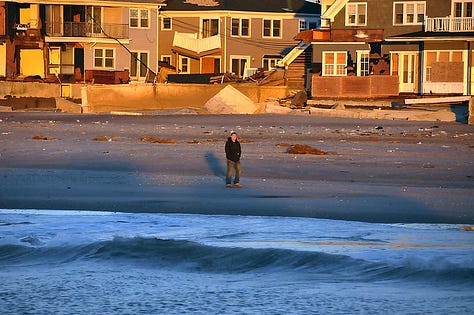Green Lights March 14: Top stories this week
Don't miss a single story of the best from Callaway Climate Insights.






. . . . Welcome back to Green Lights. Here’s our weekly roundup of the best of Callaway Climate Insights. This week, David Callaway takes a look back at four years of building this climate finance community and traveling the path of a great investment and renewable energy transition. Here are the highlights in a simple and convenient format that makes it easy for our readers. It’s also easy to subscribe.
. . . . Thanks, and Sláinte!: Four years ago this weekend, David Callaway writes, markets were plunging, Covid was spreading, and Donald Trump was still president as we launched Callaway Climate Insights with an entrepreneur’s optimism and St. Patrick’s Day toast. After all, “How bad can it get?” we asked. Thousands of subscribers and hundreds of editions later, we’re happy to report that while it’s been a wilder ride than any of us expected, the climate finance community we’ve built with each of you is growing and more people than ever are investing in the idea of a renewable energy transition.
. . . . A growing market for catastrophe bonds is the new game on Wall Street, as hedge funds try to outwit insurance companies in the business of predicting extreme weather events, David Callaway writes from New York. The $45 billion cat bond market proved the most successful strategy among hedge funds last year, as investors take the other side of the bet that major storms will devastate a specific area, such as Florida or Texas or California. But betting against climate change is like betting against the house in a casino. You play long enough, you’re going to get burned. . .
. . . . For the future of electric trucking, look east, Matthew Diebel writes. Where China goes on EVs is worth watching. It has developed the biggest home market and is now aggressively pushing to sell abroad. And so it’s interesting to note that in the current EV desert — electrified commercial vehicles — they are rapidly picking up steam. Meanwhile, the Biden administration is trying to buck things up over here.
. . . . Election-year budgets are meant to be campaign vehicles, and President Joe Biden’s 2025 budget this week hit an ambitious mark. Though it has no chance of passing Congress, it serves as a template for what economic issues Biden will use to revive a voting base frustratingly unimpressed with his first-term economic achievements.
. . . . March 11, 2020 may never “go down in infamy” beside some of the more well-known U.S. disaster dates — such a Dec. 7, 1941 or Sept. 11, 2001 — but on this fourth anniversary of the declaration of the Covid emergency, it’s worth taking brief stock of how the twin emergencies of the pandemic and the climate crisis turned the world upside down.
. . . . The next major weather catastrophe could lead to a financial crisis that does more damage than any hurricane or wildfire. How? It’s getting harder for millions of people who live in areas prone to wildfires and hurricanes to get home insurance. This story is part of Bloomberg Green’s investigation into how climate change is making parts of the planet uninsurable, leaving millions of people without a safety net.
More greenery . . . .
What Ireland thinks about climate change: New study says Irish understand the risks and trust scientists (Yale)
Fading blossoms: Some of Washington’s Iconic Cherry Trees Are About to Disappear (The New York Times)
Turning to mush: How climate change forces iconic dog-sledding event Iditarod to adapt. (ABC News)
California’s falling behind: State is not on track to meet its climate change mandates (CalMatters)
Flights of fancy: Tropical birds can handle changes in temperature better than expected (Technology Networks)







